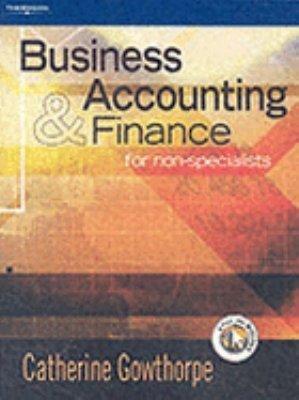Following completion of her degree course in textiles, Isobel Buchanan was unable to find a job that
Question:
Following completion of her degree course in textiles, Isobel Buchanan was unable to find a job that really used her skills and knowledge. For the last five years she has worked in a clothing firm where she deals with import and export paperwork. She has maintained her interest in textiles, and continues to produce creative work, but the experience of some of her university friends has convinced her that she does not want to face an uncertain future as an independent textile artist or designer.
Recently, however, events have occurred that have encouraged her to think about leaving her employment to set up a new business. Isobel attended a regional training course on changes in the law affecting businesses that import from outside the European Union. At the coffee break she was introduced by a colleague to Ivan, who runs his own importing business. Ivan has been investigating the possibility of importing hand-made rugs and carpets from the Middle East and India where he has several contacts. He does not want to go into the retail business himself and is examining the possibility of selling his goods wholesale to retailers. He has identified an outlet in London, but is also looking for possible selling opportunities in Scotland. Isobel expresses an interest in seeing the samples and she and Ivan arrange to meet the following week.
At the meeting, Isobel Is very impressed by the samples; the quality of the work is very fine and the patterns and colour combinations are striking and unusual. She begins to wonder whether she could set up a retail outlet herself in Scotland. She doesn't know anything about business start-ups or finance, but her uncle, Andrew, is an accountant, and she decides to ask his advice.
Andrew has been of the opinion for a long time that Isobel is more likely to make a success of a career in commerce than in the creative arts. Before she went to university he had tried to persuade her to do an HMD in finance or a degree in accountancy, but without success. So, when Isobel outlines her business idea to him he is very receptive and listens carefully. To her considerable surprise he offers to provide her with some financial backing in the form of a loan at a commercial rate of interest. Isobel, who had been wondering how she could possibly persuade a bank to give her a commercial loan, is very keen to take up the offer.
Several months pass. Andrew, although wanting to help his niece, is, after all, an accountant. He insists on Isobel producing a reasoned business plan before he will lend the money. She finds this difficult, but at last succeeds in writing a plan that Andrew finds acceptable. Isobel is prepared to risk her own savings of £10 000 (which she has buiit up over the last five years with a view to putting down a deposit on a flat) but the business plan shows that she will need a great deal more than that. Andrew and his wife pay the legal fees to have a proper loan agreement drawn up. The terms of the loan are that they will lend Isobel £40 000 immediately, with a further loan of up to £40 000 available if it is needed. The interest rate is variable, tied to commercial bank rates, and is currently at 6%. The £40 000 is to be paid off at the rate of £5 000 at the end of each financial year over an eight-year period. However, no repayment will be expected in the first three years of the business while it is getting established.
Step by Step Answer:

Business Accounting And Finance For Non Specialists
ISBN: 9781861528728
1st Edition
Authors: Catherine Gowthorpe





